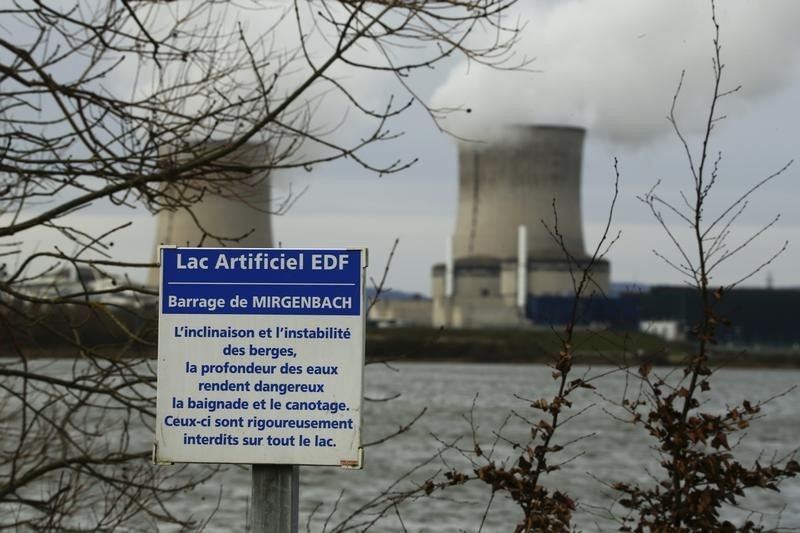By Christoph Steitz and Barbara Lewis
FRANKFURT/BRUSSELS (Reuters) - Europe is short of more than 118 billion euros (£92 billion) to dismantle its nuclear plants and manage nuclear waste storage, a European Commission working paper seen by Reuters shows.
The data is part of a periodic analysis of Europe's nuclear capacity designed as a basis to discuss the role of nuclear energy in achieving EU objectives, such as reducing greenhouse gas emissions.
The Commission's last analysis was published in 2007, before Japan's Fukushima nuclear crisis five years ago and was meant to be updated by the end of last year.
In response to Fukushima, Europe's largest economy Germany decided to abandon nuclear power by no later than 2022, relying on solar, wind, coal and gas for its energy instead.
To meet nuclear decommissioning costs, about 150.1 billion euros of assets are available, the study found, compared to an estimated 268.3 billion euros in expected costs - which include the lengthy dismantling of nuclear power stations as well as the removal and storage of radioactive parts and waste.
A stress test carried out by Germany’s Economy Ministry late last year showed the provisions made by the country’s utilities – E.ON, RWE, EnBW and Vattenfall (VATN.UL) – were adequate.
Among EU member states still operating nuclear plants, only Britain's operators have enough dedicated assets to cover the expected costs, 63 billion euros, the Commission's draft working paper finds.
France, which operates Europe's largest fleet of nuclear plants, is heavily underfunded. It has earmarked assets only worth 23 billion euros, less than a third of 74.1 billion euros in expected costs.
In Germany, an extra 7.7 billion euros is needed on top of the current 38 billion euros.
Decommissioning costs vary according to reactor type and size, location, the proximity and availability of disposal facilities, the intended future use of the site and the condition of the reactor at the time of decommissioning.
Although decommissioning might gradually become cheaper, the cost of final waste depositories is largely unknown and costs could also grow, rather than shrink, over the many decades in question.
The European Commision declined to comment on an unpublished document and has not confirmed when the report will be officially published.

Nuclear lobby Foratom has said it expects publication this month and has welcomed the update, saying nuclear energy, which generates zero-emission electricity, has a major role to play in meeting climate targets following the Paris agreement on climate change.